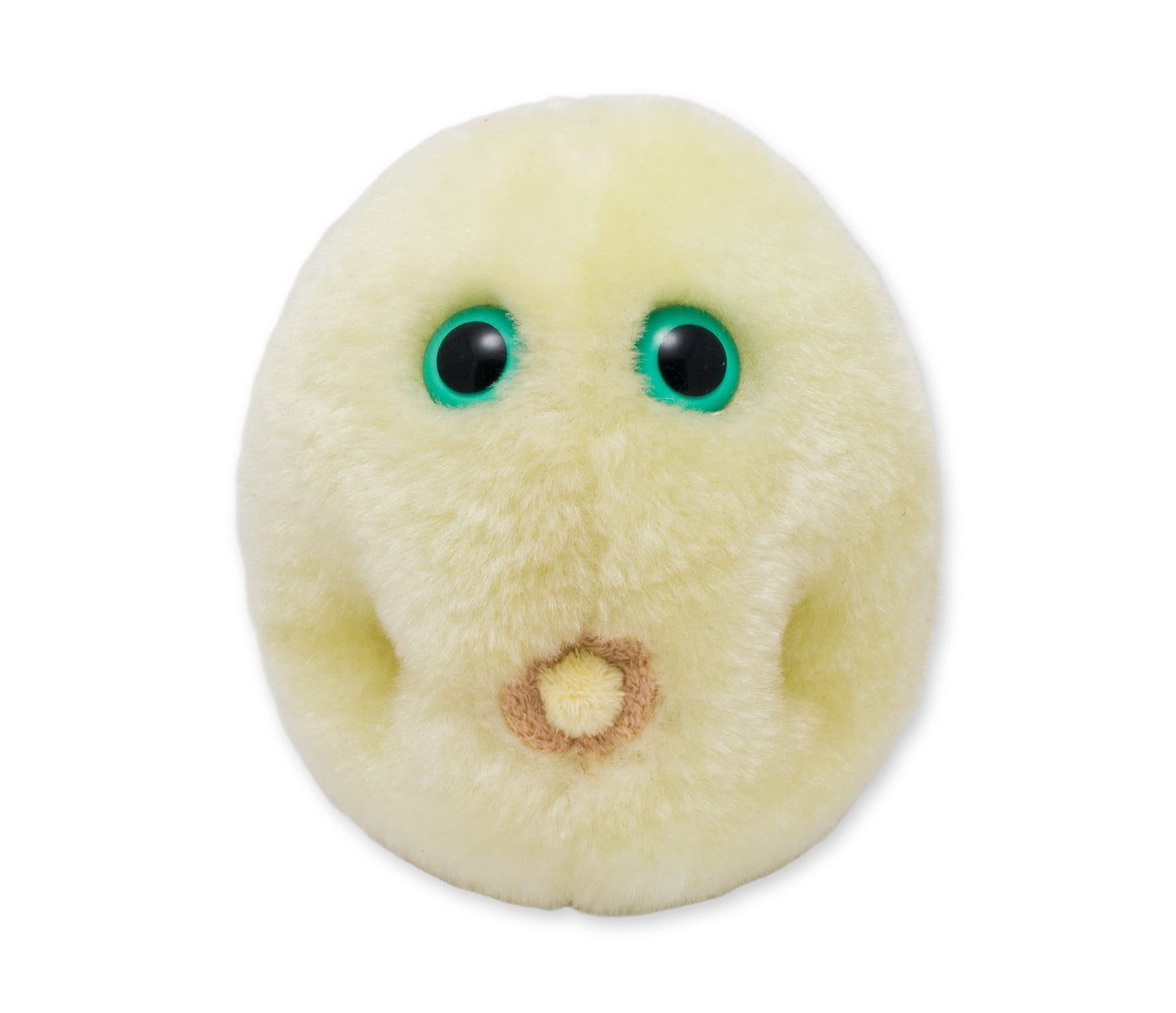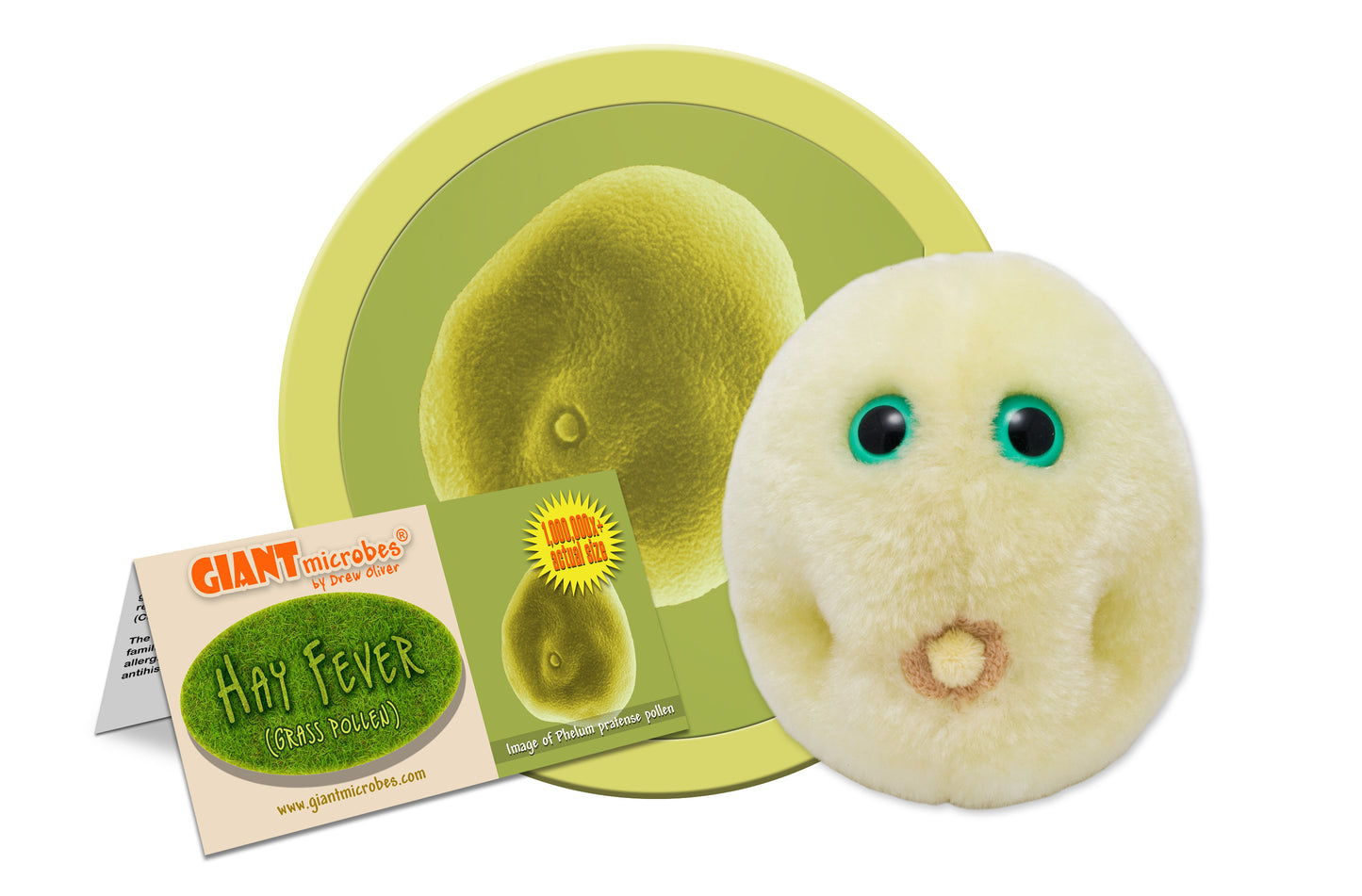Hay Fever (Grass Pollen)
Hay Fever (Grass Pollen)
Couldn't load pickup availability
- Great sympathy gift for allergy sufferers
- Learn about the science of pollination
All About Hay Fever (Grass Pollen)
FACTS: Hay fever, or medically speaking, seasonal allergic rhinitis, is a physiological reaction to the courtship rituals of grasses, trees, and weeds!
These public displays of affection don’t make everyone gag. But for nearly a quarter of the population, when pollen particles (or airborne male reproductive cells) float into the eyes, nose, or mouth, the body’s sensitive immune system is seriously disturbed. Antibodies are produced, a rush of histamines is released, and the congestion, swelling, itching, and eye-watering typical of the allergy proceeds remorselessly. (As if that weren’t enough, hay fever sufferers are also commonly subjected to a range of other afflictions such as eczema and asthma, and even migraine headaches and depression.)
While trees – and birch trees most notoriously – are the early bloomers that get the spring hay fever season off to a raging start, the common grass pollen causes the most trouble: nearly 95% of hay fever sufferers react badly to the grass pollens released in late spring and early summer. (Cutting your grass can keep it from flowering, but not your neighbors’.)
The good news is that while pollen sensitivity is often passed through families (most commonly on the mother’s side), it tends, like many allergies, to decrease with age. But if you don’t want to wait for old age, antihistamines and steam can help put the spring back in your step.
| NAME | Allergic Rhinitis (to grass pollen) |
|---|
| ACTUAL SIZE | Pollen grains are 22-122 micrometers in diameter, meaning 265 average-sized pollen grains fit across the diameter of a penny. |
|---|
| WHERE IT LIVES | Hay fever can affect people and animals! Your dogs or cats can catch hay fever too! |
|---|
| SYMPTOMS | Itchy eyes, scratchy throat, sneezing, and blocked sinuses. |
|---|
| CURE | • The best way to cure yourself from hay fever is to stay away from the pollen or microbes that cause your body’s reaction! • Medication such as antihistamines serve to reduce your body’s reaction to allergens. |
|---|
| DEADLINESS/SEVERITY | • Can lead further to complications, namely, worsening asthma or sinus infections. • Quality of life can be greatly reduced to those more prone to reactions. |
|---|
| INFECTIOUSNESS | Hay fever is caused by an allergic response to outdoor or indoor allergens, such as pollen, dust mites or pet dander. |
|---|
| HISTORY | • John Bostock was the first person to present a paper describing the symptoms of hay fever in 1819. • In 1859 Charles Blackley was able to trace the exact source of his allergies to grass pollen. Over time the general public’s view of hay fever changed from a “disease” to how it is currently viewed today: a reaction. |
|---|
| FASCINATING FACTS | Hay Fever was so named because the general public thought that the smell of new hay produced the illness. |
|---|




